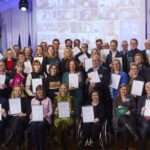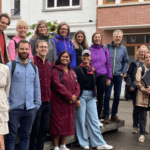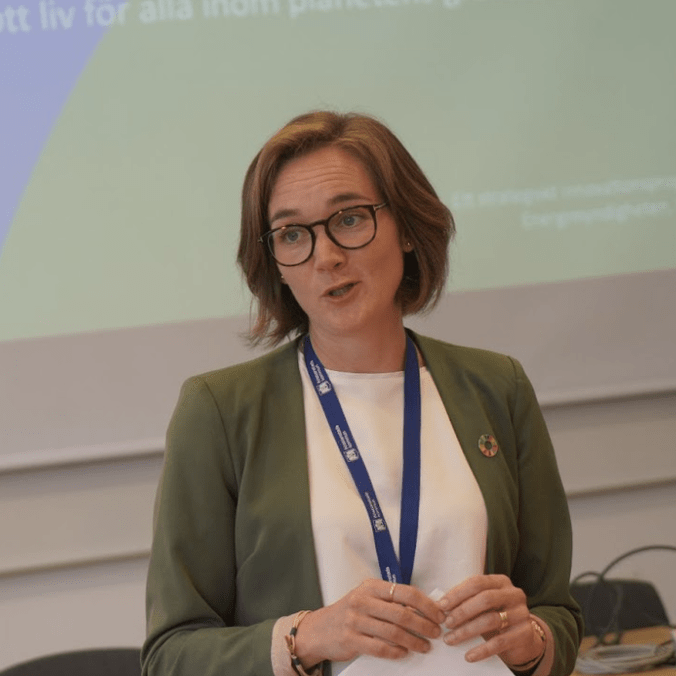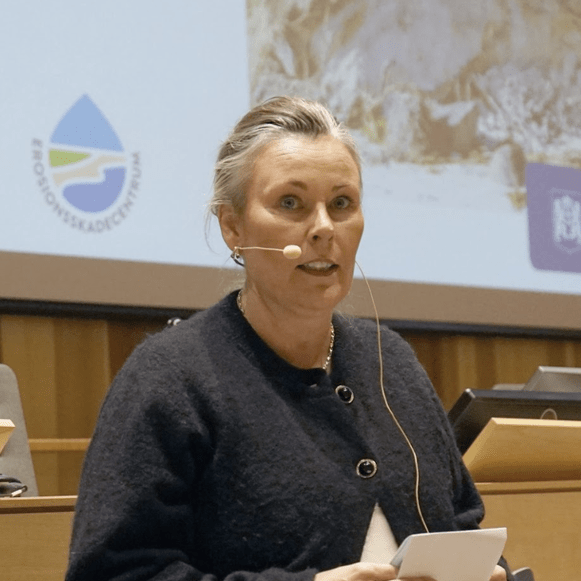Kristianstad works with clear focus areas, local actors and goal-oriented efforts.
Kristianstad hooks arms with Tomelilla.

Kristianstad is working with local actors to achieve a climate-neutral, sustainable and resilient food system in Kristianstad, has recently adopted a sustainable development strategy that is followed up annually through a progress report, is mobilizing, together with local actors, for increased energy production, reliable electricity distribution and efficient energy use, and is developing its methodology for business-oriented climate investment plans.
Climate Neutral Kristianstad 2030 is led by Kristianstad Municipality. For almost three years, Kristianstad has been working to spread knowledge about the municipality's climate ambitions and now has a wide range of people and organizations from public organisations, business and civil society participating in the work in different ways. The development work always continues by using the forums, collaborations, networks and associations that already exist in the municipality and linking them more strongly to climate change adaptation and sustainable development.
In Kristianstad, there is a strong focus on the transformation of the food system, and the municipality is working to reduce the climate impact of the agricultural sector and increase the amount of carbon in the soil. The energy sector is also working hard to strengthen and develop both local energy preparedness and energy planning. Together with local stakeholders, the municipality is mobilizing for increased energy production, reliable electricity distribution and efficient energy use.
Through, among other things, the Kristianstad Wetlands Biosphere Reserve, Kristianstad is contributing to the rewetting of peatlands, as well as taking measures for climate adaptation. The municipality is constructing wetlands that slow the progress of water through the landscape and contribute to climate adaptation, and work on rewetting peatland in the municipality continues.
In the construction sector, there is also a strong commitment to climate change among local businesses and a business network for climate-neutral construction has been established. Within the municipal organization, there is also a cross-administrative steering group for climate-neutral construction that seeks to understand obstacles, challenges and solutions.
The municipality of Kristianstad works communicatively to visualize a future to look forward to and a place to be proud of, with some of the content based on places, dreams and memories shared by citizens. They are also working on the increased impact of local Climate City Contract, exploring municipal lease agreements as a tool to stimulate more carbon in land, encouraging more cycling and public transport travel, and proudly showcasing all that is already being done, in different parts of the municipality's area of responsibility, through films.
In the city's latest update, they talk about the work, the transition arena, the project portfolio and much more.




Linnea Skoogh, process manager for Climate Neutral Kristianstad 2030, linnea.skoogh@kristianstad.se

Kristianstad highlights five initiatives that they believe may be of particular interest to other municipalities to spy and apply. Contact the process leader to spy and apply.
Climate City Contract 2030 is a collective effort to achieve the climate transition that we need to implement in a short time to keep global warming below 1.5 degrees. It is an agreement between municipalities, government agencies and Viable Cities where all parties undertake to make a concrete contribution to increasing the pace of climate change.

To achieve deep change, we need to move from fragmented projects to an ecosystem of efforts that all pull in the same direction. Cities are doing this together with Viable Cities, funders government agencies and other partners, in different constellations and with different objectives. It is about moving beyond dealing with symptoms and instead focusing on underlying problems in our social structure. Here you will find the initiatives and studies within the city that have been granted funding under Viable Cities.

This feasibility study will investigate how delimited climate investment plans for a municipal administration and a municipal company can be designed to clarify...

Gävle is part of the NetZeroCities 112 Mission Cities, selected since 2022 to pioneer the EU Cities Mission.